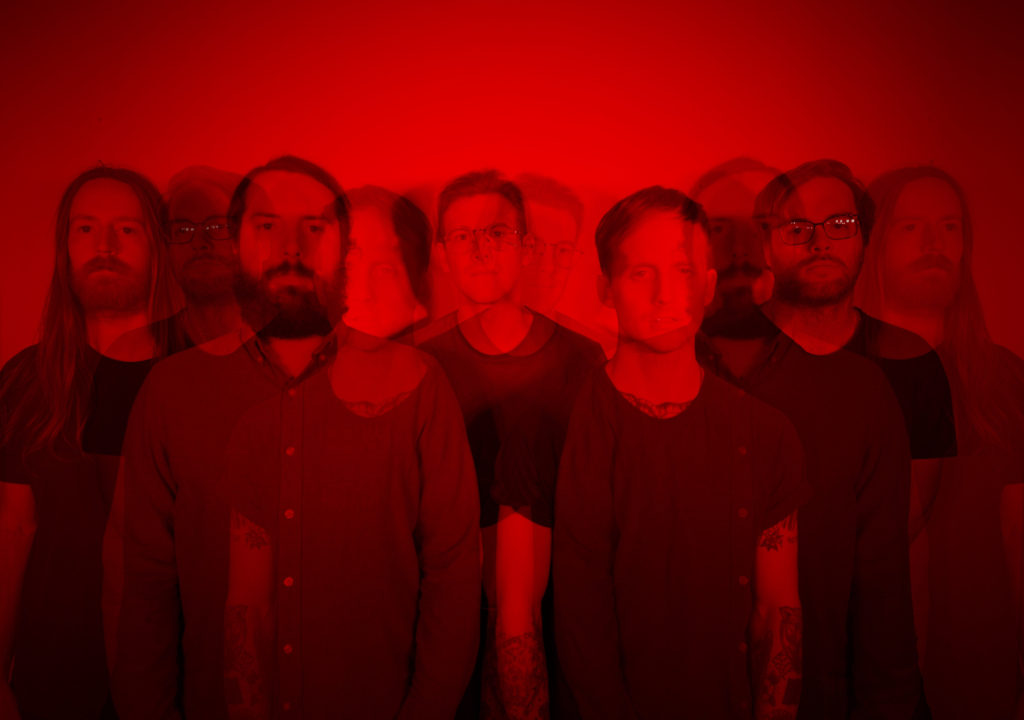
When we last spoke to Canadian post-punk outfit Blessed over a year ago, they had been sitting on tracks that would end up forming the backbone of their debut album Salt, which came out at the beginning of April and proceeded to shoot up the Canadian indie charts. Now that they’ve embarked on a coast-hopping North American tour that takes them far from the greater Vancouver area and back to O’Brien’s in Allston on May 16th, Blessed’s enthusiastic guitarist Drew Riekman called to check in and catch us up on the last 12 months for the band. Riekman talked at length about growing a fanbase away from home and the immense pride the band has now that they can say they’ve self-released their biggest project yet.
Salt is a post-punk odyssey that blends driving guitar work, intricate rhythmic patterns, and varied song structure to craft an album that embodies the essences of all its influences (krautrock, math rock, good old fashioned noise), into something infectiously catchy and groovy. Why not stream it on Bandcamp while you read what Drew had to say below, and see why the Candian DIY scene is not something to be ignored. Catch Blessed and Tunic at O’Brien’s on Thursday!
Allston Pudding: How has the tour been going so far?
Drew Riekman: We’re about three weeks in. We’ve been in a bit of a weird, rough phase because two of us came down with an illness. We are coming out of it a little bit. Two days ago, I slept for 36 hours, and we had to cancel some shows. I haven’t been sick like this in a while. Having a day off and an okay place to sleep and not having to drive anywhere, I think we’re all grateful to be able to spend the day sitting around.
AP: Well, I’m glad you’re feeling well enough to take the time to call me. You’re back in Boston May 16th, which is a while from now.
DR: Fingers crossed. I think we’ll be totally fine. We’re excited to be back [at O’Brien’s in Allston]. There’s a select couple cities around North America now that have become reliable places to play despite the size of the band we are and operating still on a mostly DIY level. Allston’s always been super good. Y’all have been very fortunate with how many good bands are coming out of the area lately. People are down.
AP: You’ve just released Salt, you’re first full-length album this Spring. Congrats! It’s a really great record. When did you start working on that relative to last time we spoke around this time last year?
DR: Last time we chatted, I think it was already done. The record took a long time to bring to its full realization. We had recorded it in Montreal in November of 2017. We wanted to get out of Vancouver and go somewhere completely different, with a new engineer and new people surrounding the band. We worked with this fellow Jace Lasek, and he made the record with us in Montreal. Then, after we mixed it, we ended up sitting on it a little while, figuring out what we wanted to do with it. We got it mastered halfway through 2018, shopped it to some labels we liked.
Eventually, we came to this weird conclusion where the people we wanted to work with were all onboard to do it, and our previous EPs had come out on two labels – and they were great and supported us – but everytime you sell a record, even on a small label, you’re only keeping about fifty percent, if you’re lucky. So we made the conscious decision to release the record on our own, so that pushed that time frame back awhile. It’s been a very cool learning experience; I’m very happy we did it this way. It feels good to have this record out that’s completely by the band. In Canada, it’s been performing really well on college radio. It’s been gratifying.

Salt Cover
AP: What was striking on first listen was the construction of it, switching between different rhythms even within individual songs. How do you plan that out during songwriting?
DR: We’ve always come from this place of writing whatever we want. We started because we didn’t want to be creatively restricted. We all came from bands that kind of stayed in their lane and didn’t deviate from that. When we started, we said, let’s just write what we want to write, and if we can walk away from it being proud of it, that’s great.
The writing is almost entirely democratic. A lot of it is written in the jam space. Someone will come in with the skeleton of something. There’s this rule we have where if one of us has an idea, and the other four think it’s silly or it won’t work, no matter what we have to try it, and we can’t half-ass. We have to learn whatever that person’s idea was, play it a couple times, execute it really well, then decide. It turns writing into a lengthy process, but it definitely makes a lot of pieces and room for songs and those changes. We try to do what we think would be interesting, what we’d like to hear. Between the five of us, there are so many individual tastes. There are very few bands that all five of us listen to.
AP: It might take a little longer, but that philosophy of “let’s try it” must first of all make everyone happy, but also keep you all on your toes.
DR: It keeps you playing different, it keeps you thinking about songs different. And of course, we all want our voices to be heard and feel respected. Communication is important with five people who spend a bunch of time together. [Now that the record is finally out], I think we’re super stoked to have it in the world.
AP: The record gets off to a strong start with “Rolled in Glass.” How did that set the tone for the rest of the album?
DR: The band I always thought of when we were writing it was Suicide. When I think of records that I love, they’re all over the map. But, at the same time, we don’t want to make records that are jumpy and weird. We put so much effort into the tracklisting. It was very meticulous. With five people, nothing gets done quickly, so I hope people hear the thought put into the record. Everything was purposefully put where it was and everything was very intentional.
AP: Since you’ve had these written for awhile, which of these tracks have become most exciting to play live?
DR: We’ve been slowly working on expanding them live. Even on some of our old songs, we’ve expanded sections.
AP: But all your songs evolve really well within themselves. They’re never repetitive. So do you expand on them to keep them fresh?
DR: Over the course of a tour, we start identifying places [in songs] where we could this a little differently, or that a little longer. With the nature of playing 120 shows a year, you feel like you hit a capacity. I don’t think we’re going to play these songs better. I think we’re operating at peak capacity. But the next step beyond that is trying to listen to each other live and trying new weird and different things, seeing what sticks and what doesn’t. It makes it an exciting process, even when you’re playing your fiftieth or sixtieth show of the year. We find something we can restructure. It’s not jam band-y though; it’s all structured. We have to have a ten minute talk about it in the van the next day.
